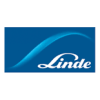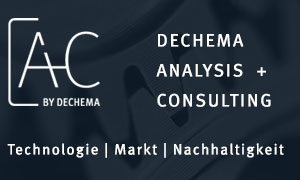The workshop will – for the first time – take place in scenic Marktheidenfeld, located between Würzburg and Frankfurt, 90 km away from the Frankfurt International Airport. The conference hotel is right on the “Main” River and the venue is within walking distance to the heart of the village. This romantic old fishing town is surrounded by woods and vineyards and is also a great starting point for hiking trips. It is a perfect spot to experience heart-warming Franconian hospitality and the area’s long history and natural beauty. It is ideally located to enjoy Franconian wine and beer or to take a long stroll through the vineyards. Further attractions close by include an 18-hole golf course as well as a thermal spa and pool.
Hotel Zur Schönen Aussicht
Brückenstraße 8
97828 Marktheidenfeld
Phone: +49 9391 / 98550
Fax: +49 9391 / 3722
www.hotelaussicht.de
How to get to the Conference Hotel "Hotel Zur Schönen Aussicht":
BUS TRANSFER FRANKFURT AM MAIN/MARKTHEIDENFELD AND BACK:
We offer a bus transfer on Monday, 25 September from Frankfurt/Main Airport (parking lot P 36) at 2 pm and from the DECHEMA-House, Theodor-Heuss-Allee 25, 60486 Frankfurt am Main at 2:30 pm to the conference hotel in Marktheidenfeld.
The parking lot at the airport is within walking distance from Terminal 1.
When you leave the airport reception hall you need to go right. It is signposted P 36.
Guests arriving at Terminal 2 take the airport shuttle bus to Terminal 1 and get off directly at P 36.
The bus from Marktheidenfeld to Frankfurt/Main Airport and DECHEMA on Friday, 29 September is leaving at the Hotel Zur Schönen Aussicht at 2 pm.
TRAVELLING BY CAR
You can reach the hotel via the freeway A3 Nuremberg - Frankfurt.
Coming from the west or northwest, take exit 64 "Rohrbrunn" and follow the country road B8 for another 20km to Marktheidenfeld. Cross the old bridge over the river Main and you will find us directly after entering the town on the right hand side.
Coming from the south or east, leave the A3 freeway at exit 67 "Helmstadt" and follow the well-maintained B8 to Marktheidenfeld. After driving through the city center, you will find our house directly next to the old bridge over the river Main at the end of town.
TRAVELLING BY PLANE
Nearest airport - Frankfurt am Main
The airport is about 90 km away and can be reached by car in about 50 minutes. Car rental companies are available at the airport as well as in Marktheidenfeld.
TRAVELLING BY TRAIN
There is NO train station in Marktheidenfeld. Nearest train station is in Lohr am Main or Würzburg.
Both Lohr am Main and Würzburg have a long-distance train station. You can easily use the public transport, a further journey is possible either by bus or also with a cab company.
We recommend to take the train to Würzburg and the bus number 633 form Würzburg to Marktheidenfeld.
If you are planning to travel to Marktheidenfeld by train and Bus, you may use the joint offer from Deutsche Bahn (DB) and DECHEMA and travel to our conference at a reduced fare starting from 51,90 € (one way).
Further information at http://www.dechema.de/en/train.html.





